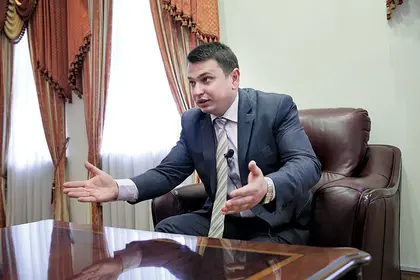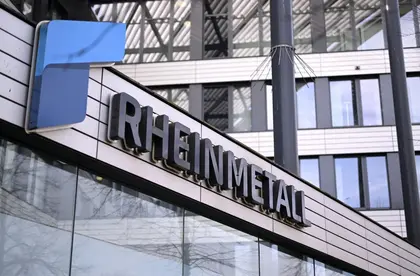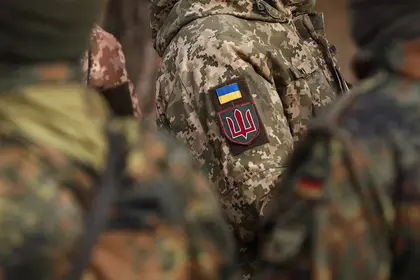At least in recent years, billions of dollars annualy got siphoned in corrupt public procurement schemes at government agencies and state-owned companies, according to officials and non-profit groups that monitor graft.
Law enforcement officials and judges take bribes to quash investigations or throw out cases.
Other examples include customs officials who take kickbacks to expedite the processing of cargo, or tax officials who ask for money to issue value-added tax refunds to companies in liquidity squeezes.
Combined, the corrupt schemes during ex-President Viktor Yanukovych’s four years in power allegedly led to the theft of $37 billion from the state — equal to one-fifth of Ukraine’s gross domestic product in 2013, according to Prime Minister Arseniy Yatsenyuk.
Now the job of fighting graft as of April 16 belongs to Sytnyk, who was the chief investigator of the Kyiv Oblast prosecutor’s office before resigning over a disagreement with Yanukovych’s rule.
In his words, the Anti-Corruption Bureau, with its future staff of up to 700, won’t “turn Ukraine around,” but it will make an example of those who break the law. His monthly salary for the daunting task is Hr 60,900, or $2,600 a month, which is almost what the president makes.
Sytnyk, 35, told the Kyiv Post at his office on May 8 that the agency consists of only two people so far: he and his deputy, Gizo Uglava, the former deputy prosecutor general of Georgia.
He wants the agency to be fully functioning by October. In the meantime, they’ve started a competitive hiring process to select the first 100 investigating officers. The deadline to apply for 15 managerial positions has already expired.
‘Treating everyone equally’
The bureau’s biggest priority is to investigate and prevent crimes committed by the highest officials: ministers, deputy ministers, governors, top prosecutors. According to legislation, the bureau isn’t limited to investigating a certain rank in the judiciary.
“Fighting corruption in the courts is our top priority – starting with the regional courts and up to the Constitutional Court,” Sytnyk said.
Here’s how it will work. The agency will be divided into two main departments comprised of detectives and analysts.
Analysts in turn will be divided by industries and will monitor a combined database that contains information about property, budgeting, and public procurement. If they identify possible risks or violations, they then will pass the data to detectives, who will investigate the case.
The combined database is yet to be created though, Sytnyk added.
However, Ukraine’s parliament has already adopted legislation in the first of two readings to open access to information on owners of land, real estate and vehicles.
“We also count on civil society organizations, journalists and ordinary people to provide us with the analytical materials,” Sytnyk said, saying that the corruption-fighting bureau will operate a call center to obtain leads on graft.
Asked, if they already have some insight or names of officials who will be investigated first, Sytnyk said that “the selective approach will lead nowhere.”
“The basis of the fighting corruption is treating everyone equally. We don’t need to wait for corruption to peep out, we need to be proactive,” he said.
As long as government and parliament continues slashing regulations, it will ease the pressure on business and reduce corruption risks.
“When…we will not have 180 controlling bodies, strangling our business, but 15, the corruption risks would be much lower,” Sytnyk said.
In the middle of 2014, the Cabinet of Ministers placed a moratorium on the inspection of businesses, except for the State Fiscal Inspection. In early 2015, it was prolonged for another six months.
Experts from the Federation of Employers of Ukraine praised the measure, saying the amount of inspections declined by 63 percent, according to the federation’s website.
“But even under the moratorium, controllers still managed to carry over 223,000 inspections during the second half of 2014,” Oleksiy Miroshnychenko, the federation’s head was quoted as saying.
He also noted that the size of fines has increased five times.
Emulating Georgia’s experience
Two weeks after his appointment, Sytnyk hired Uglava of Georgia.
“Ukraine matters to Georgia, we believe that if we save Georgia, we save Ukraine, and the other way round. Moreover, that’s my chance to do what I love – to investigate,” Uglava told Kyiv Post.
According to both men, the Ukrainian bureau will turn to Georgia’s experience in fighting graft.
One example is deals to allow officials facing corruption charges to voluntarily pay a fine and promise not to hold public office anymore.
“It encourages people to cooperate with the investigation,” Uglava said.
Detectives, a new institution for Ukraine, will get to have the authority of a field investigator and the investigating officer.
“Earlier either of them had their own job, different goals. When the field investigator has found something, the investigating officer had to wrap up the investigation so that the court can accept it as evidence. Field investigators usually had no idea how to do that,” Sytnyk said.
To apply for the detective position, a person needs to have a degree in law, and at least two years of legal practice.
Sytnyk and Uglava expect about 10,000 applicants for the first 100 positions. The most suitable candidates will pass a special exam and will get interviewed. The hired detectives will attend a special training.
Kyiv Post staff writer Alyona Zhuk can be reached at [email protected].
You can also highlight the text and press Ctrl + Enter







Comments (0)